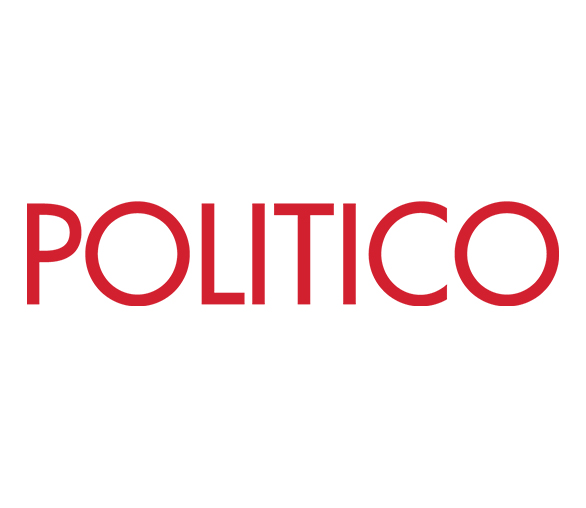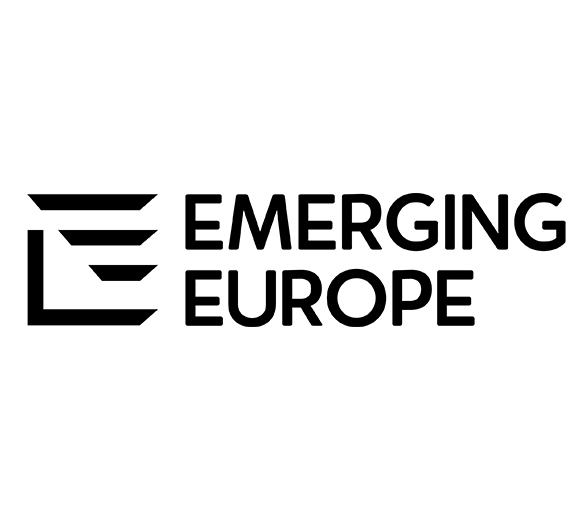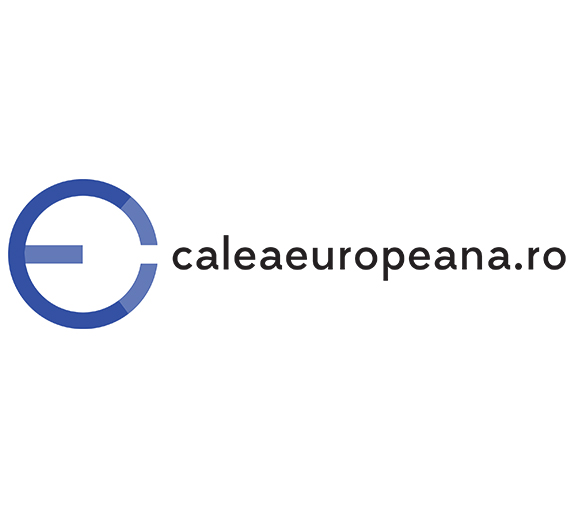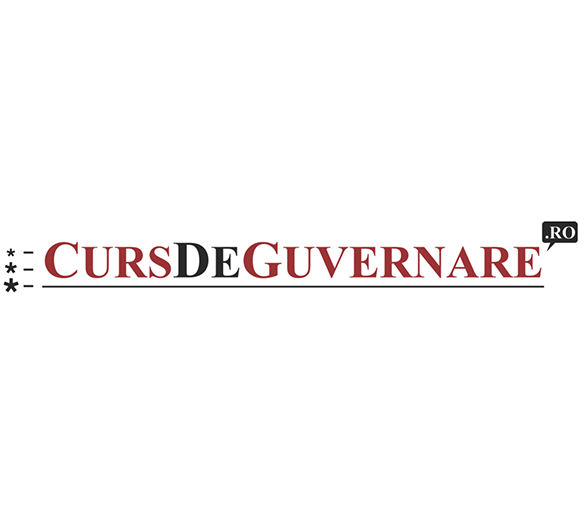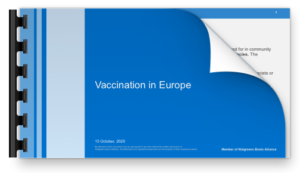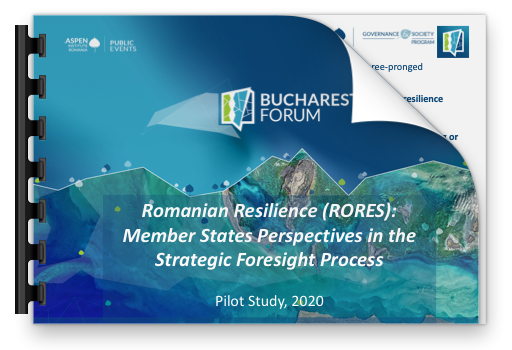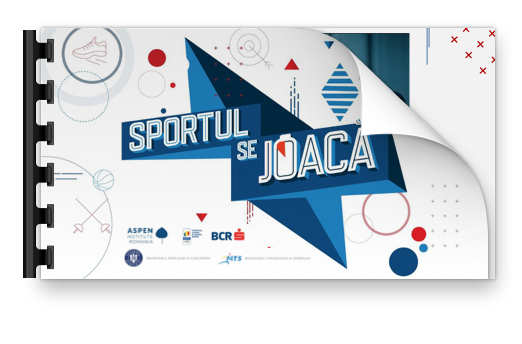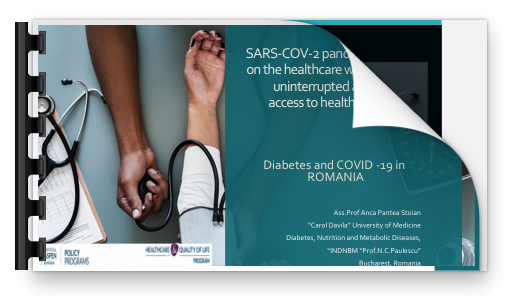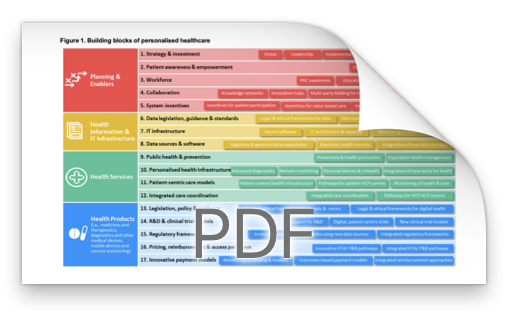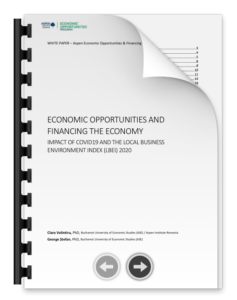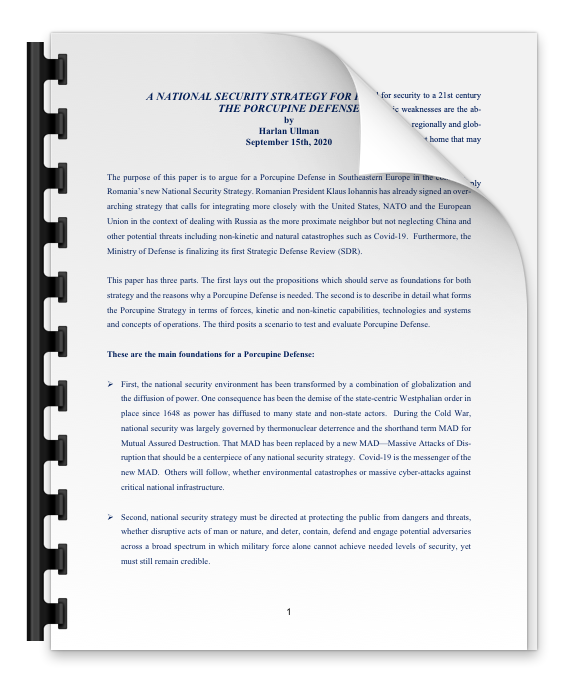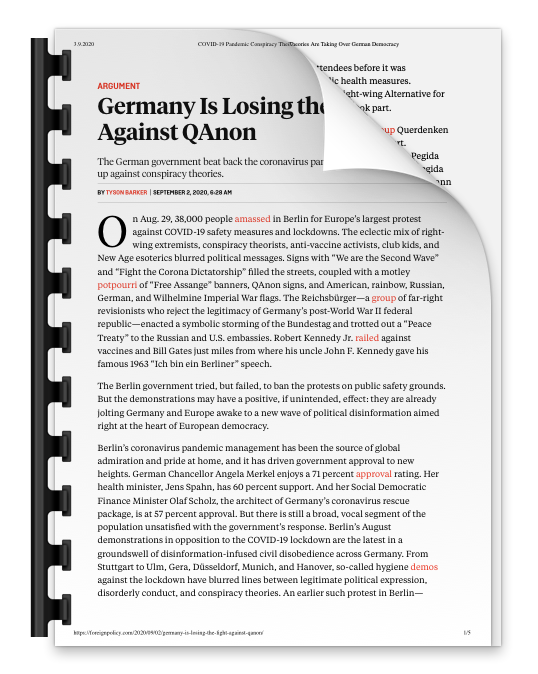Bucharest Forum 2020
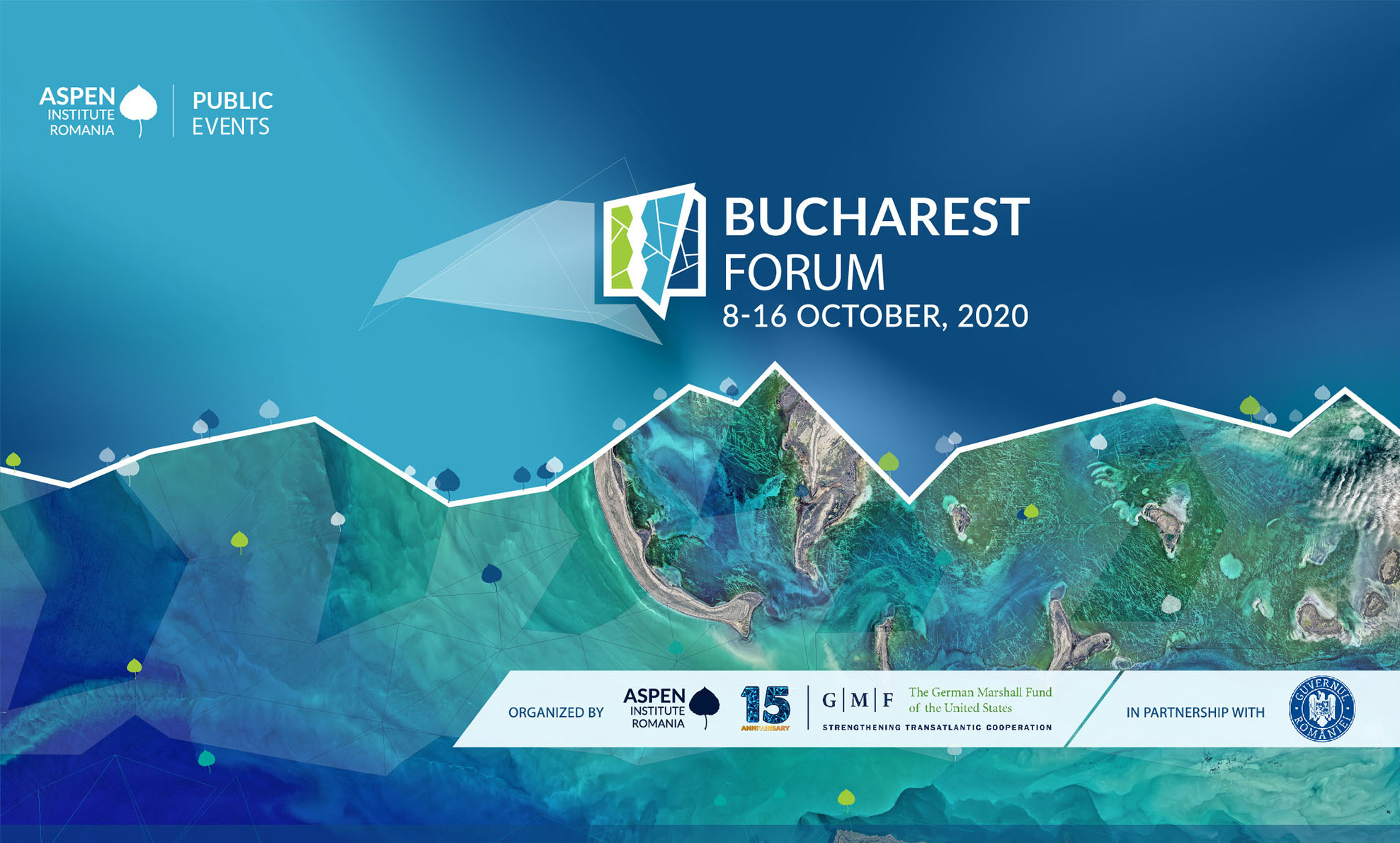
Bucharest Forum 2020
Resilience, Pandenomics and the Great Acceleration
October 8 – 16 | ONLINE
Bucharest Forum is the leading strategic debate platform in the Black Sea region and the Balkans, bringing on the same stage a significant number of high-level politicians, businesspersons, journalists, and academics from all over the world. Organized by the Aspen Institute Romania and the German Marshall Fund of the US, Bucharest office, in partnership with the Government of Romania, the event offers a unique opportunity for a high-level East-West conversation in a global transformative context. It also facilitates an in-depth understanding of how decisions about the Eurasian formations and the transatlantic link evolve.
Institutional Partners: Government of Romania, Ministry of Foreign Affairs of Romania, Ministry of National Defense of Romania, National Bank of Romania, ITRE Committee – European Parliament Committee on Industry, Research, Telecoms & Energy
International Partners: Aspen Institute France, Aspen Institute Germany, Aspen Institute Italy
Knowledge Partners: True Story Project, Reveal Marketing Research, Bucharest University of Economic Studies – ASE Bucuresti
Main Partners: Microsoft, Vodafone, UniCredit Bank Romania, UiPath, Raiffeisen Bank, Mastercard, Lockheed Martin, Jet Fly Hub
Partners: Premier Energy, MOL Romania, CEZ, OMV Petrom, Banca Transilvania, Enevo Group, Electrica SA, KMG International
Media Partners: POLITICO, Emerging Europe, Digi24, caleaeuropeana.ro and CursDeGuvernare.ro.
The event aims to provide answers to major questions of the moment:

How can we increase the resilience of our institutions and of our social and economic contracts, and be better prepared for future global shocks?

How deep and long lasting is the impact and what are the lessons learned from this momentous event?

What are the geo-political and geo-economic implications on the global balance of power and on the Great Power competition?

Are we witnessing a turning point in world affairs or a Great Acceleration of history?

What will be the consequences for the European project, the trans-Atlantic relations, and the institutions of the political West?

This year, Bucharest Forum will be a 7-day marathon edition. And, for the first time, Aspen Institute Romania sectorial events including the Healthcare Forum, Atlantic – Black Sea Security Forum, Energy Summit, Project Play Summit and Governance Innovation Forum will take place under the umbrella of Bucharest Forum 2020, between October 8-16.
Event panel sessions are open to a wider public this year, due to the online format. Participants registered on this website (using the Registration buttons inserted in the below event agenda) will receive alerts and real-time information on the sections they are interested in.
Most important speakers Bucharest Forum 2020
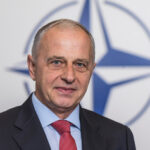
Amb. Mircea Geoană
Deputy Secretary General
NATO
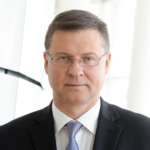
H.E. Valdis Dombrovskis
Executive Vice-President
European Commission

H.E. Maroš Šefčovič
Vice-President for Interinstitutional Relations and Foresight
European Commission
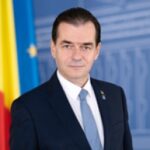
H.E. Ludovic Orban
Prime Minister of Romania
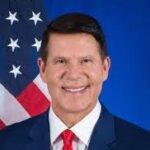
Keith Krach
Under Secretary of State for Economic Growth, Energy, and the Environment
U.S. Department of State
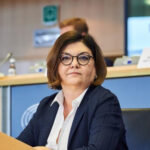
Adina Vălean
Commissioner for Transport
European Commission

Anna Bjerde
Vice President
Europe and Central Asia, World Bank
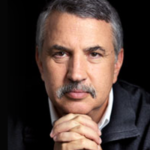
Thomas Friedman
Op-Ed columnist
The New York Times
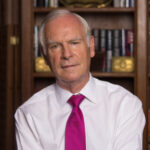
Peter Georgescu
Chairman Emeritus
Young & Rubicam

Cristian Bușoi
Chair, Committee on Industry, Research and Energy
European Parliament
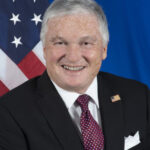
Adrian Zuckerman
U.S. Ambassador to Romania

Dragoș Tudorache
Chair, Special Committee on Artificial Intelligence in a Digital Age
European Parliament

Sergiu Manea
CEO
Banca Comercială Română

Carmen Mihălcescu
Vice-President
Romanian Chamber of Deputies

Virgil Popescu
Minister of Economy, Energy and the Business Environment
Government of Romania

Christina Verchere
Chief Executive Officer
OMV Petrom

Bogdan Aurescu
Minister of Foreign Affairs of Romania
Government of Romania
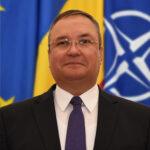
Nicolae Ciucă
Minister of National Defence
Government of Romania

Marian Ionuț Stroe
Minister for Youth and Sport
Government of Romania

Mario Brandenburg
Spokesperson for the AI Enquete Commission
Member of the German Bundestag

Iskander Abdibaitov
Chief Officer Corporate Development
KMG International
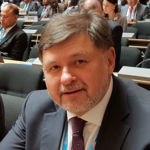
Alexandru Rafila
Director
Healthcare and Quality of Life Program, Aspen Institute Romania
Member of the Executive Committee
World Health Organization

Andreas Schaal
Director for Global Relations
OECD
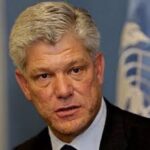
Fabrizio Hochschild
Under Secretary General
United Nations
Special Adviser on the Preparations for the Commemoration of the United Nations’ 75th Anniversary

Joana Sánchez Klosinska
Vice President, Public Policy CEE
Mastercard

Salim Ismail
Co-Founder & Chairman
ExO Works

Tsvetanka Mintcheva
Deputy CEO
UniCredit Bank Romania

Ondrej Safar
Country Manager
CEZ Romania

Cristian Sporiș
Vicepresident
Corporate Division, Raiffeisen Bank
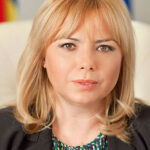
Anca Dragu
Deputy Director
E.ON Romania,
Former Minister of Public Finance
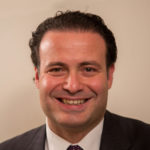
Ozgur Unluhisarcikli
Director of the Ankara office of the German Marshall Fund of the United States

Sabin Sărmaș
President
Authority for the Digitalization of Romania

Camelia Ene
Country Chairman & CEO
MOL Romania

Bogdan Chirițoiu
President
Competition Council, Romania
Member of the Administrative Board
Agency for the Cooperation of Energy Regulators

Răzvan Atim
General Manager Eastern Europe
UiPath
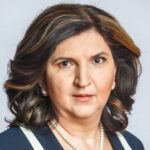
Corina Popescu
CEO
Electrica

Amb. Baiba Braže
Assistant Secretary General for Public Diplomacy
NATO

Dr. Hans Kluge
Regional Director for Europe
World Health Organization

Sorin Ducaru
Director
European Union Satellite Center

Pia Ahrenkilde Hansen
Director-General of Communication
European Commission

David McAllister
Chair of the Foreign Affairs Committee
European Parliament

Rémi Mayet
Head of Unit, Energy Security and Safety, DG Energy
European Commission

Violeta Luca
General Manager
Microsoft

Sven Smit
Vice Chairman and Director
McKinsey Global Institute (MGI)

Tomicah Tillemann
Founder and Director, Digital Impact and Governance Initiative (DIGI)
New America Foundation
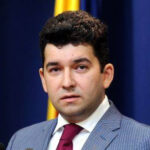
Liviu Voinea
Senior Advisor
International Monetary Fund
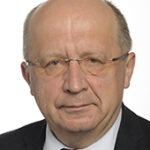
Andrius Kubilius
Chair, Delegation to the Euronest Parliamentary Assembly
European Parliament
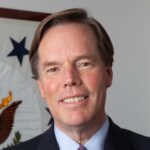
Amb. Nicholas Burns
Executive Director, Aspen Strategy Group, Professor of the Practice of Diplomacy and International Politics
Harvard Kennedy School

Damon Wilson
Executive Vice President
Atlantic Council

Alina Polyakova
President and CEO
Center for European Policy Analysis (CEPA)

Constanze Stelzenmüller
Senior Fellow – Foreign Policy, Center on the United States and Europe
Brookings Institute

Ed Williams
Chairman
Aspen Initiative UK

Rosa Balfour
Director
Carnegie Europe

Jeff Bullwinkel
Associate General Counsel and Director of Corporate, External & Legal Affairs
Microsoft Europe

Alexandra Gătej
Acting President
Aspen Institute Romania

Alina Inayeh
Director
German Marshall Fund of the United States, Bucharest office

Stephen Flanagan
Senior Political Scientist
RAND Corporation

General Dominique Trinquand
Former Head of the French Delegation
UN Peace keeping operations

Harlan Ullman
Chairman
The Killowen Group
Senior Advisor
Atlantic Council

Ben Hodges
Pershing Chair in Strategic Studies
Center for European Policy Analysis

Radu Tudor
Political and Military Analyst

Alina Bârgăoanu
Dean of the Faculty of Communication and Public Relations
SNSPA
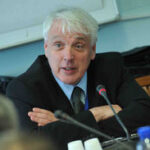
Jamie Shea
Former Deputy Assistant Secretary General for Emerging Security Challenges
NATO

Jakub Turowski
Head of Public Policy for Poland, Baltics, Romania, Bulgaria
Facebook

Bram Boxhoorn
Director
Netherlands Atlantic Association
Adjunct Faculty Lecturer
Webster University Leiden

Zsuzsanna Szelenyi
Hungarian politician, former MP, Richard von Weizsäcker Fellow
Robert Bosch Academy

Guilherme de Aguiar Patriota
Consul General of Brazil in Mumbai, India
Chair of the UNGGE in Advancing responsible State behavior in cyberspace

Richard Spearman
Group Corporate Security Director
Vodafone

Andrei Sannikov
Belarusian politician and activist
Civil campaign European Belarus

Nicolas Tenzer
Chairman
Center for Studies and Research on Political Decision (CERAP), Paris

Riccardo Perissich
Member of the Board of Directors
Jacques Delors Institute

Cornel Ban
Associate Professor of International Political Economy
Copenhagen Business School
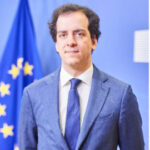
Alejandro Cainzos
Member of Cabinet of Executive Vice-President Margrethe Vestager, in charge of Security and Cybersecurity
European Commission

Jaya Baloo
Cybersecurity Expert, Chief Information Security Officer (CISO)
Avast Software

Tyson Barker
Head of the Technology and Foreign Policy Program
German Council on Foreign Relations (DGAP)

Margareta Chesaru
Public Affairs Manager
UiPath

Roxana Voicu-Dorobanțu
Associate Professor
Bucharest University of Economic Studies (ASE)

Iulian Trandafir
CEO
Alliance Healthcare Romania

Mihai Covaliu
President
Romanian Olympic and Sports Committee

Tom Farrey
Executive Director, Sports & Society Program
Aspen Institute US

Dr. Diana-Loreta Păun
Presidential Adviser
Department of Public Health, Presidential Administration
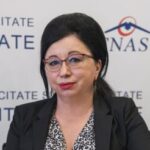
Adela Cojan
President
National Health Insurance House

Murielle Lorilloux
CEO
Vodafone Romania

Lidija Milicevic
GBU Head
Sanofi Pasteur Romania & Moldova

Claudiu Cheleş
General Manager ad-interim
Roche Romania

Mihnea Samoilă
General Manager
PetroMed Solutions (OMV Petrom Group)

Guilherme de Aguiar Patriota
Consul General of Brazil in Mumbai, India
Chair of the UNGGE in Advancing esponsible State behavior in cyberspace

Teija Tiilikainen
Director
European Center of Excellence for Countering Hybrid Threats

Jacques Attali
Former President
European Bank for Reconstruction and Development
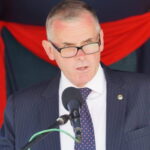
Michael Ellis
Chairman
International Intellectual Property Crime Investigators College (an INTERPOL Initiative in Co-operation with UL)
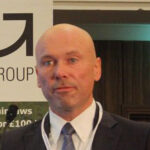
Erling Vestergaard
Intellectual Property Enforcement Expert
European Union Intellectual Property Office (EUIPO)

Bogdan Cîinaru
Intellectual Property Crimes Specialist
EUROPOL

Gabriel Dina
Corporate Affairs Manager
Pfizer Romania

Radu Gănescu
President
COPAC
Vice President
European Patients’ Forum Board

Conf. Dr. Anca Pantea Stoian
University of Medicine and Pharmacy “Carol Davila” Bucharest / National Institute of Diabetes, Nutrition and Metabolic Diseases “N.C. Paulescu”

Claudiu Pândaru
Journalist
Republica.ro & Digi24

Attila László
President
Committee for Public Health, Romanian Senate
Bucharest Forum 2020 most important moderators

Kimberly Dozier
Contributor
TIME Magazine
Global Affairs Analyst
CNN
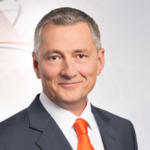
Terry Martin
Senior News Anchor
Deutsche Welle TV

Laurens Cerulus
Senior Policy Reporter
Politico

Andrew Wrobel
Founding Partner, Strategy & Content
Emerging Europe

Steven Erlanger
Chief Diplomatic Correspondent for Europe
The New York Times
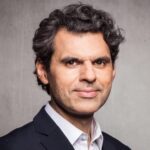
Ali Aslan
TV-Moderator and Journalist

Liz Claman
Anchor
FOX Business Network

Jennifer Lee
Medical Analyst
CNN
Clinical Associate Professor of Emergency Medicine
The George Washington University

Brooks Tigner
EU and NATO Affairs Correspondent
Jane’s Defense Weekly

Koert Debeuf
Editor-in-Chief
EUobserver
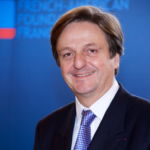
Jean-Luc Allavena
Chairman
Aspen Institute France

Garrett M. Graff
Director, Cyber Initiatives
The Aspen Institute

Alexandra Martin
Head of GLOBSEC Brussels Office

Prof. Dr. Cristian Vlădescu
Director
National School of Public Health

Marius Geantă
President and Co-Founder
Centre for Innovation in Medicine

Clara Volintiru
Director, Aspen Economic Opportunities & Financing the Economy Program
Aspen Institute Romania
Associate Professor, Department of International Business and Economics
Bucharest University of Economic Studies (ASE)

Radu Puchiu
Director, Aspen Technology & Society Program
Aspen Institute Romania

Cristi Pîrvulescu
Chief Executive Officer
Enevo Group

Ana Cătăuță
External Affairs Officer
World Bank Romania and Hungary office

Lorand (Boți) Balint
Managing Director
Publicis Sport & Entertainment Romania

Antonia Colibășanu
Chief Operating Officer
Geopolitical Futures
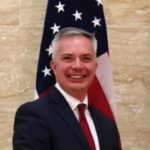
Scott Kerin
U.S. Department of Justice, International Computer Hacking and Intellectual Property (ICHIP) Attorney-Advisor

Mirela Oprea
Aspen Fellow
Social and Behaviour Change Advisor
World Vision International
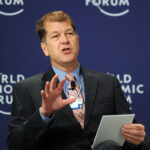
Steve Clemons
Political and Foreign Policy Commentator, Editor at Large
The Hill

Andrea Shalal
Senior Correspondent in Washington
Reuters
Event agenda
We invite you to register for each day separately.
You will find the Registration buttons by clicking on each day of the Bucharest Forum agenda.
14.00 – 14.10 EEST Opening
- Alexandra Gătej, Acting President, Aspen Institute Romania
- Alina Inayeh, Director, German Marshall Fund of the United States, Bucharest office
14.10 – 14.30 EEST Keynote Address
- H.E. Ludovic Orban, Prime Minister of Romania
- Official Message from the President of Romania delivered by Constantin Dudu Ionescu, State Adviser, Presidential Administration
14.30 – 14.45 EEST Keynote Speech
- H.E. Mircea Geoană, Deputy Secretary General, NATO
14.45 – 15.30 EEST Interactive Session: NATO @2030, with H.E. Mircea Geoană moderated by Terry Martin, Senior News Anchor, Deutsche Welle TV
15.30 – 16.00 EEST Presentation – Resilience Scoreboard – A Member State’s Perspective
- Clara Volintiru, Director, Aspen Economic Opportunities & Financing the Economy Program, Associate Professor, Department of International Business and Economics, Bucharest University of Economic Studies (ASE)
- Cornel Ban, Associate Professor of International Political Economy, Copenhagen Business School
16.15 – 17.00 EEST Panel Session: Building Resilience in transportation, cyber, demographics and future of work
The COVID-19 pandemic has proved that states and multilateral institutions must become more prepared to resist a wide range of threats and attacks, and better cooperate in the process of recovery. An assessment of existing shortcomings is being carried out at the EU and member states level. It has become clear that resilience needs to be bolstered in key sectors such as cyber and sustainable transportation, in order to make sure the twin digital and green transitions planned at the EU level will take place successfully. Cyber resilience must become an essential requirement for much needed investments in the IT&C sector, while transportation, as the backbone of industry, must be able withstand and recover from any foreseeable shock. The pandemic has also exposed a paradigm shift in the future of jobs, as changes predicted for the future have already started to take place. The panel will also address how states and institutions should adapt to this, as well as to the demographic changes affecting the political West.
- Adina Vălean, Commissioner for Transport, European Commission
- Andreas Schaal, Director for Global Relations, OECD
- Sven Smit, Senior Partner at McKinsey & Company and Co-chair of the McKinsey Global Institute (MGI)
- Jeff Bullwinkel, Associate General Counsel and Director of Corporate, External & Legal Affairs, Microsoft Europe
Moderator: Andrew Wrobel, Founding Partner, Strategy & Content, Emerging Europe
17.00 – 17.20 EEST Keynote address
- H.E. Adrian Zuckerman, U.S. Ambassador to Romania
17.30 – 18.15 EEST VIP Conversation on Transatlantic Relations
- Ambassador Nicholas Burns, Executive Director, Aspen Strategy Group, Professor of the Practice of Diplomacy and International Politics, Harvard Kennedy School
- David McAllister, Chair of the Foreign Affairs Committee, European Parliament
Moderator: Steve Clemons, Political and Foreign Policy Commentator, Editor at Large, The Hill
14.30 – 15.00 EEST High – Level Conversation with H.E. Valdis Dombrovskis, Executive Vice-President, European Commission, moderated by Kimberly Dozier, Contributor, TIME Magazine, Global Affairs Analyst, CNN
15.15 – 16.00 EEST Panel Session: Geo-political and economic disruptions
The COVID-19 crisis has acted as a great magnifier of geopolitical and geo-economic trends, showcasing the fragility of the global balance of power and exposing the weaknesses of international cooperation, already strained after several years in which the global liberal order has been eroded. From an economic point of view, too, the pandemic has proved highly disruptive, being expected to trigger a massive, global economic crisis, possibly the largest after WWII. The pandemic also showed the West’s supply chain vulnerability and dependence on Asia, and China in particular, and signaled a shift towards strategic autonomy and relocalization of industries. In this disruptive global context marked by an unstable balance of power, the panel asks whether the global liberal order and international cooperation can make a comeback, and under what conditions.
- Ed Williams, Chairman of the Board of Trustees, Aspen Initiative UK, President and CEO, Edelman EMEA
- Rosa Balfour, Director, Carnegie Europe
- Sergiu Manea, Chief Executive Officer, Banca Comerciala Romana
- Liviu Voinea, Senior Advisor, International Monetary Fund
Moderator: Liz Claman, Anchor, FOX Business Network
16.25 – 17.30 EEST Panel Session: Lead or Retreat? Democracy vs. Authoritarianism
Both in terms of global governance and at the national level, the past few years have revealed the erosion of democratic, liberal values and exposed a perilous descent into authoritarianism. Diverging views on multilateralism in international relations and on the role of the state in society appeared not only between East and West, but also among states in the political West. The transatlantic relation has also been strained, and ideology remains one of the reasons for this. The COVID-19 pandemic has exacerbated these global trends, making policy-makers, experts and citizens alike question the future of multilateralism and liberal democracies. The panel will analyse these complex challenges, while also looking at how democratic societies and a global liberal order can remain the global norm in the context of the increasing popularity of authoritarianism and growing anarchy at the international level.
- Teija Tiilikainen, Director, European Center of Excellence for Countering Hybrid Threats
- Damon Wilson, Executive Vice President, Atlantic Council
- Constanze Stelzenmüller, Senior Fellow – Foreign Policy, Center on the United States and Europe, Brookings Institute
- Alina Polyakova, President and CEO, Center for European Policy Analysis (CEPA)
- Andrius Kubilius, Chair, Delegation to the Euronest Parliamentary Assembly, European Parliament
Moderator: Andrea Shalal, Senior Correspondent in Washington, Reuters
17.45 – 18.30 EEST Panel Session: The role of intellectual property and the need for better protection (in partnership with the Embassy of the United States to Romania, the U.S. Department of Justice, and the International Computer Hacking and Intellectual Property (ICHIP) Program)
- Michael Ellis, Chairman, International Intellectual Property Crime Investigators College (an INTERPOL Initiative in Co-operation with UL)
- Erling Vestergaard, Intellectual Property Enforcement Expert, European Union Intellectual Property Office (EUIPO)
- Bogdan Cîinaru, Intellectual Property Crimes Specialist, EUROPOL
Moderator: Scott Kerin, U.S. Department of Justice, International Computer Hacking and Intellectual Property (ICHIP) Attorney-Advisor
Aspen Healthcare Forum, now at its ninth edition, is the major public event of Aspen Institute Romania’s Healthcare & Quality of Life Program, bringing together decision-makers, renowned specialists from the medical sector, European and national experts in the fields of healthcare, health technology and pharmaceutical sector, representatives of academia and researchers, as well as industry leaders engaged in developing health policies. Last years’ participation of several experts from abroad contributed to setting up a program community and an agenda of thematic priorities in convergence with national priorities and advanced technological solutions as well as the EU regulatory framework and WHO goals.
This year’s edition will be organized online, under the umbrella of Bucharest Forum, in the context of the SARS-COV-2 pandemic and its far-reaching implications for the health sector and beyond. While fighting the pandemic must undoubtedly remain a priority of health systems across the world, it is crucial that health systems continue to secure uninterrupted access to medical services to all other categories of patients. Aspen Healthcare Forum 2020 will focus on prevention as a key pillar for the resilience of public health systems. To accurately address the needs of citizens and be financially sustainable, public health systems must proactively focus on prevention of diseases and health promotion rather than the diagnosis and treatment of diseases. This includes routine immunization programs, a legislative framework encouraging vaccination as well as routine screening for major forms of cancer and systemic health checks for noncommunicable diseases. The Forum will look at best practices in the field of prevention and analyze possible areas of improvement in Romania.
The Forum will also discuss key topics for today’s health systems, including the deficit of healthcare workers in Romania and globally. In addition, the event will also look at E-health as a means of increasing public health systems’ resilience against pandemics and analyze the impact of the digital transformation and developments in the field of AI on the healthcare sector.
Aspen Healthcare & Quality of Life 2020 Program Partners: Roche, Alliance Healthcare, Janssen pharmaceutical companies of Johnson & Johnson, Pfizer, Sanofi, GSK, Astra Zeneca
09.30 – 09.45 EEST Opening and Welcome address
- Alexandra Gătej – Acting President, Aspen Institute Romania
- Prof. dr. Alexandru Rafila – Member of the Executive Board of WHO / Director, Aspen Healthcare & Quality of Life Program
09.45 – 11.00 EEST Prevention as a key pillar for the sustainability of public health systems
- Routine immunization programs, supporting a legislative framework which encourages vaccination
- Routine screening and systemic health checks for major noncommunicable diseases
- Dr. Diana-Loreta Păun – Presidential Adviser, Department of Public Health, Presidential Administration
- Lidija Milicevic – GBU Head, Sanofi Pasteur Romania & Moldova
- Iulian Trandafir – CEO, Alliance Healthcare Romania/Member of the Board, Aspen Institute Romania
- Gabriel Dina – Corporate Affairs Manager, Pfizer Romania
Moderator: : Prof. dr. Alexandru Rafila – Member of the Executive Board of WHO / Director, Aspen Healthcare & Quality of Life Program
11.00 – 12.15 EEST SARS-COV-2 pandemic’s effects on the healthcare workforce and uninterrupted and universal access to healthcare services
- Tackling the deficit of healthcare workers in Romania and globally
- Solutions for providing universal access to healthcare services (including vulnerable and risk groups)
- Routine screening and systemic health checks for major noncommunicable diseases
- Dr. Attila László – President, Committee for Public Health, Romanian Senate
- Radu Gănescu – President, COPAC / Vice President, European Patients’ Forum Board
- Conf. Dr. Anca Pantea Stoian – University of Medicine and Pharmacy “Carol Davila” Bucharest / National Institute of Diabetes, Nutrition and Metabolic Diseases “N.C. Paulescu”
- Claudiu Cheleş, Ad-interim General Manager, Roche Romania
Moderator: :Prof. Dr. Cristian Vlădescu – Director, National School of Public Health
12:15 – 13:15 EEST E-health and Artificial Intelligence
- Increasing public health systems’ resilience against pandemics through E-health
- Priorities of the Romanian digitalization agenda: developing healthcare digital strategic capacities and interoperability of databases and systems.
- The ethics of data: impact of AI developments on the healthcare sector
- Adela Cojan – President, National Health Insurance House
- Mihnea Samoilă – General Manager, PetroMed Solutions (OMV Petrom Group)
- Claudiu Pândaru – Journalist, Republica.ro & Digi24
Moderator: :Marius Geantă – President and Co-Founder, Centre for Innovation in Medicine
14.30 – 15.00 EEST High – Level Conversation with H.E. Maroš Šefčovič, Vice-President for Interinstitutional Relations and Foresight, European Commission, moderated by Steven Erlanger, Chief Diplomatic Correspondent for Europe, The New York Times
15.00 – 15.30 EEST VIP Conversation on Economic recovery and the pandemic
- Anna Bjerde, Vice President, Europe and Central Asia, World Bank
- Andrew Wrobel, Founding Partner, Strategy & Content, Emerging Europe
15.30 – 16.30 EEST Panel Session: Economic recovery and the pandemic
The COVID-19 pandemic will have dire effects on the global economy, with institutions such as the World Bank and IMF predicting severe contractions across the world. The pandemic has emphasized the need to improve economic resilience, namely the capacity of economic systems to foresee and adapt to regional and global shocks, thus enabling a quick recovery. This panel will discuss how economic resilience can be improved and analyze which mix of financing instruments will provide the best options for economic recovery, in Europe and the world. The panel will look at promising available options, including public investments (particularly in key sectors), EU funds, international financial institutions financing options and also means for a stronger cooperation between public institutions and the private sector, including public-private partnerships. The role of digitalization and de-bureaucratization as facilitators of economic recovery will also be discussed.
- Jacques Attali, Former President of the European Bank for Reconstruction and Development
- Ana-Maria Bușoniu, General Director, General Directorate for European Competitiveness Operational Programme, Ministry of European Funds, Government of Romania
- Joana Sánchez Klosinska, Vice President, Public Policy CEE, Mastercard
- Cristian Sporiș, Vicepresident, Corporate Division, Raiffeisen Bank
- Tsvetanka Mintcheva, Deputy CEO, UniCredit Bank Romania
Moderator: Clara Volintiru, Director, Aspen Economic Opportunities & Financing the Economy Program, Associate Professor, Department of International Business and Economics, Bucharest University of Economic Studies (ASE)
17.15 – 18.00 EEST Conversation with Peter Georgescu, Chairman Emeritus, Young & Rubicam : Capitalists, Arise! The economic and social cost of economic inequality
Peter Georgescu arrived in America as a Romanian refugee and rose to prominence as the CEO of Young & Rubicam. His life story can be considered an American Dream success story that, most likely, could not play out in today’s economic ecosystem — one that is overwhelmed by disappearing jobs, flat wages, and a decreasing middle class. In his book, Capitalists, Arise!, Georgescu argues that the unambiguous reality of America’s current economic illness and social collapse can be attributed, in large part, to the short-term thinking generated by shareholder primacy. Also, Peter Georgescu advocates that the way toward a better future will only be possible through enlightened capitalism.
Moderator: Ana Cătăuță, External Affairs Officer, World Bank Romania and Hungary office
15.00 – 15.15 EEST Keynote Address
- Virgil Popescu, Minister of Economy, Energy and the Business Environment, Government of Romania
15.15 – 16.00 EEST Panel Session: The impact of the COVID – 19 crisis on Energy security
The panel will analyze how the COVID-19 pandemic has affected energy security, described as the ability of the energy system to react quickly to unexpected changes in the supply-demand balance.
Given its geographical position and natural potential, Romania has the occasion to play an important role in the regional energy balance, both by connecting its own resources and by taking a leading position in the balanced redistribution of energy resources coming from the Caspian Sea, the Middle East and the Eastern Mediterranean to the European market. Will EU countries, and especially Romania, be able to make sure that, in the scenario of another disrupting shock, their economies will function without interruption and their citizens will have access to adequate, reliable and affordable supplies of modern and clean energy?
- Bogdan Chirițoiu, President, Competition Council, Romania, Member of the Administrative Board, Agency for the Cooperation of Energy Regulators
- Rémi Mayet, Head of Unit, Energy Security and Safety, DG Energy, European Commission
- Camelia Ene, Country Chairman & CEO, MOL Romania
- Iskander Abdibaitov, Chief Officer Corporate Development, KMG International
Moderator : Antonia Colibășanu, Chief Operating Officer, Geopolitical Futures
16.00 – 16.45 EEST Panel Session: European Green Deal – Energy efficiency and the need for resilience
The Green Deal roadmap features ambitious targets for transition to decarbonization, aiming to make the EU climate-neutral by 2050 by promoting clean, renewable energy. In this context, the panel will try to see how the energy sector will look like in the next decade, and in particular during the post-pandemic period. Will investments in green energy and new technologies be reduced or could they, together with investments in gas and electricity interconnections, be a viable tool to restart the EU economy? The discussion will also analyze the Romanian context, looking at ways in which Romania’s energy mix could contribute to a transition towards a green energy sector. Will Romania be able to benefit from the opportunities given by EU-funded instruments such as the Recovery Fund and the Just Energy Transition Fund?
- Cristian Bușoi, Chair, Committee on Industry, Research and Energy, European Parliament
- Christina Verchere, Chief Executive Officer, OMV Petrom
- Ondrej Safar, Country Manager, CEZ Romania
- Corina Popescu, CEO, Electrica
- Anca Dragu, Deputy Director, E.ON Romania, Former Minister of Public Finance
Moderator : Cristi Pîrvulescu, Chief Executive Officer, Enevo Group
17.00 – 17.45 EEST Panel Session: Joacă pentru Viață – Investing in the quality of life of younger generations
Worldwide, the participation rate of children in physical and sport activities is decreasing, while the COVID – 19 pandemic has aggravated this phenomenon. Joacă pentru Viaţă Program, inspired by Project Play Aspen US, triggers a mentality change in the Romanian society, supporting the development of healthy children and communities. Aiming at increasing the physical literacy rate of children, a term defined as the ability, confidence and desire to be active for life, the panel will explore methods to increase the attractiveness of physical and sport activities among children. What is the role of the key stakeholders, which are the main public policy recommendations and how does the “Sportul se Joacă” campaign, developed under the framework of Joacă pentru Viaţă Program, contribute to this objective?
- Marian Ionuț Stroe, Minister for Youth and Sport, Government of Romania
- Mihai Covaliu, President, Romanian Olympic and Sports Committee
- Tom Farrey, Executive Director, Sports & Society Program, Aspen Institute US
Moderator :Lorand (Boți) Balint, Managing Director, Publicis Sport & Entertainment Romania
13:30 – 14:00 EEST Oxford Style Debate: Should Social Media be Censored? (in partnership with True Story Project)
2020 has seen a surge in initiatives from social media companies to regulate and clean the content on their platforms with the stated purpose to fight against fake news. However, their efforts have proven to be largely ineffective, since the advent of the pandemic has taken disinformation to an unprecedented level. What is then the solution against post-truth journalism and unverified content? Should censorship be imposed as the most effective measure to counter fake news? Or would such censorship do more harm then good by removing the free flow of information?
This Oxford-style debate will provide a structured, time-limited interaction between two speakers supporting opposite views of the debate motion. Audience participation will be required in the form of voting for or against the motion at the beginning and at the end of the session.
- Alina Bârgăoanu, Dean of the Faculty of Communication and Public Relations, National University of Political Studies and Public Administration, Bucharest (SNSPA)
- Tyson Barker, Head of the Technology and Foreign Policy Program, German Council on Foreign Relations (DGAP)
Moderator: Alina Inayeh, Director, German Marshall Fund of the United States, Bucharest office
15.00 – 16.00 EEST Panel Session: Lessons learned from the COVID-19 pandemic: the impact of technology, digitalization and de-bureaucratization (in partnership with Aspen Institute Germany)
While the pandemic’s effects are of a magnitude still difficult to measure, some important lessons learned have already emerged from the crisis. In developed and emerging countries alike, the digital transformation of both the public and private sector has accelerated as a means of combating the pandemic’s effects, increasing societal resilience by providing continuity of key services. New technologies such as AI, software automation (Robotic Process Automation/RPA) and robotics are able to transform the way people interact with public administrations and businesses. The panel will discuss how digitalization and new technologies can foster economic recovery in the wake of the pandemic, while also addressing their impact on the future of jobs and the future workforce. Furthermore, the panel will analyze the challenges digitalization still faces in the much-needed de-bureaucratization process of many countries’ public sector, looking into the benefits of a Digital First policy endorsed by decision-makers. The security of digital networks in the context of an accelerated digitalization will also be analyzed.
- Mario Brandenburg, Member of the German Bundestag, Spokesperson for the AI Enquete Commission
- Tomicah Tillemann, Founder and Director, Digital Impact and Governance Initiative (DIGI), New America Foundation
- Sabin Sărmaș, President, Authority for the Digitalization of Romania
- Violeta Luca, General Manager, Microsoft
- Murielle Lorilloux, CEO Vodafone Romania
- Răzvan Atim, General Manager Eastern Europe, UiPath
Moderator: Radu Puchiu, Director, Aspen Technology & Society Program
16.15 – 17.15 EEST – Panel Session: Social Media and Democracy – How to build social resilience in a complex context (in partnership with The Aspen Institute)
New technologies are impacting on democracy in complex ways. While the benefits of technology are undeniable, digitalization has also provided state and non-state actors interested in undermining democracy significant opportunities for disruption. For instance, social media has become a battle ground for the hearts and minds of citizens. The panel will address the topic of resilience in the face of online disinformation and fake news through social media, a tactic which has recently become a key pillar of a wider hybrid warfare campaign waged by state and non-state actors against institutions such as NATO, the EU, and their member states. How can international organizations, and social media platforms counter this tactic?
- Ambassador Baiba Braže, Assistant Secretary General for Public Diplomacy, NATO
- Pia Ahrenkilde Hansen, Director-General of Communication, European Commission
- Alina Bârgăoanu, Dean of the Faculty of Communication and Public Relations, National University of Political Studies and Public Administration, Bucharest (SNSPA)
- Jakub Turowski, Head of Public Policy for Poland, Baltics, Romania, Bulgaria, Facebook
Moderator: Garrett M. Graff, Director, Cyber Initiatives, The Aspen Institute
17.30 – 18.15 EEST – Panel Session Increasing the resilience of health systems and improving states’ rapid response capacity (in partnership with Aspen Institute Italy)
The panel will focus on strategies for improving the resilience of health systems in the context of the SARS-COV-2 pandemic, both in terms of public health policies and securing uninterrupted access to medical services to all categories of patients, including for chronic diseases. The panel will also address states’ rapid response capacity, as a matter of national security, analyzing best practices in ensuring preparedness for all public health emergencies.
- Carmen Mihălcescu, Vice-President, Romanian Chamber of Deputies
- Dr. Hans Kluge, Regional Director for Europe, World Health Organization
- Dragoș Garofil, Secretary of State, Ministry of Health, Government of Romania
- Prof.Dr. Alexandru Rafila, Director, Healthcare and Quality of Life Program, Aspen Institute Romania, Member of the Executive Committee, World Health Organization
Moderator: Jennifer Lee, Medical Analyst, CNN, Clinical Associate Professor of Emergency Medicine, The George Washington University
18.30 – 19.00 EEST – Fireside Chat on 5G Security and the Clean Network, with Keith Krach, Under Secretary of State for Economic Growth, Energy, and the Environment, U.S. Department of State, and Mircea Geoana, Deputy Secretary General, NATO
13:30 – 14:30 EST Panel Session: Autocratic Resilience (in partnership with True Story Project)
Autocratic leaders have gained momentum in many countries around the world, among which the most recent ones are Belarus, Hungary and Turkey. Pictures and recordings from mass protests in these states have circulated around the internet, portraying a friction between societies and their leadership. This panel seeks to explore the ways in which resilience can be enhanced even in times of a pandemic, when another layer of sanitary apprehension is added to the general dimension of protesting, resisting autocratic forces and building up a strong civil society response and a sustainable plan for the future.
- Andrei Sannikov, Belarusian politician and activist, Civil campaign European Belarus
- Zsuzsanna Szelenyi, Hungarian politician, former MP, Richard von Weizsäcker Fellow, Robert Bosch Academy
- Ozgur Unluhisarcikli, Director of the Ankara office of the German Marshall Fund of the United States
Moderator: Alexandra Martin, Head of GLOBSEC Brussels Office
15.00 – 16.00 EEST Panel Session: Education for the future: disruption or …?
Education for Industry X.0 is a challenging topic, even more so in a context of forced social distancing and digitalization. Add to the mix the emergence of Massive Open Online Courses, digital credentialing, corporate education providers and a dissolution of the current business model of most universities, and the debate becomes essential. The panel raises a series of questions in a conversation that is to be continued: What elements should be part of an education for resilience and resilient societies? How is the future of education interwoven to the future of work? What are the necessary skills for a professional in the next 20 years and how can they be delivered in a most effective manner in a world disrupted by technology? STEM or STEAM (add the Arts and humanities)? Which way forward for bridging the gap in education provision between countries / regions / social strata?
- Dragoș Tudorache, Chair, Special Committee on Artificial Intelligence in a Digital Age, European Parliament
- Margareta Chesaru, Public Affairs Manager, UiPath
- Roxana Voicu-Dorobanțu, Associate Professor, Bucharest University of Economic Studies (ASE)
- Simona Iftimescu, Lecturer, Faculty of Psychology and Educational Sciences, University of Bucharest
Moderator: Mirela Oprea,Aspen Fellow, Social and Behaviour Change Advisor, World Vision International
16.15 – 17.00 EEST Conversation: Is a new model of capitalism needed?
While not a financial crisis in itself, the economic crisis caused by COVID-19 has amplified debates on the role of the Government in protecting citizens from unexpected economic shocks, but also negative externalities of the global economy, such as global warming. Across the political West, there are calls for more public and private investments in research and development and innovation in order to make use of new technologies such as digitalization, and also create a greener economy. Also, a debate arose on whether private sector should to a higher degree embrace a new caring type of capitalism, based on a renewed sense of purpose, and act not only in the benefit of the shareholders, but also of their employees, their communities and their customers and other stakeholders, contributing to the creation of value to a broader part of the society.
This panel seeks to address the challenges and opportunities brought about by these momentous changes, looking at potential measures the public and private sectors need to take to embrace this new model.
- Salim Ismail, Co-Founder & Chairman, ExO Works
Moderator: Jean-Luc Allavena, Chairman, Aspen Institute France
17.00 – 18.00 EEST Spotlight Event by POLITICO on Critical Infrastructures
Securing critical infrastructures is essential to the health and wealth of our societies. As increasing parts of the economy depend – at least partially – on digital networks to function, and as home working is becoming part of the new normal, the cybersecurity of vital sectors is under the spotlight. Software vulnerabilities are nothing new. But the willingness of malicious actors, including state-backed actors, to use fragilities in the systems to endanger critical infrastructures has gone up. Due to the digital or hybrid nature of the threats, drawing up legitimate and actionable rules of engagement in cyberspace is no mean feat.
The European Commission is drafting this Fall a series of cybersecurity documents, including a new Cybersecurity Strategy, a revised directive on critical infrastructure and one on network security for critical infrastructure (the NIS Directive).
- Alexandra Gătej, Acting President, Aspen Institute Romania
- Alejandro Cainzos, Member of Cabinet of European Commission Executive Vice-President Margrethe Vestager, in charge of Security and Cybersecurity
- Jaya Baloo, Cybersecurity Expert, Chief Information Security Officer (CISO), Avast Software
- Guilherme de Aguiar Patriota, Consul General of Brazil in Mumbai, India, Chair of the UNGGE in Advancing esponsible State behavior in cyberspace
Moderator: Laurens Cerulus, Senior Policy Reporter, Politico
18.00 – 18.30 EEST A VIP Conversation with Thomas L. Friedman, Author and Op-Ed columnist at The New York Times, moderated by Ali Aslan, International TV-Host and Journalist
14.00 – 14.15 EEST Keynote Address
- Nicolae Ciucă, Minister of National Defence, Government of Romania
14.15 – 15.00 EEST Panel Session: Investing in defense for economic recovery or the other way around?
The security environment worldwide has been transformed by a combination of globalization and the diffusion of power. Challenges to national defense have moved beyond traditional concerns to what strategist Harlan Ullman describes as Massive Attacks of Disruption, underscoring the dangers of terrorism, cyber threats, environmental catastrophes, health crises such as the COVID-19 pandemic and other challenges such as climate change that now destabilize international and domestic orders. In the context of the economic crisis caused by the pandemic, defense is a sector that cannot be overlooked by investments, considering the wide range of existing challenges which threaten our societies. Furthermore, investments in key areas of the defense sector can contribute to economic recovery, not just security. The panel will discuss these key challenges and debate how a national defense strategy for the future could counter these new threats.
- Sorin Ducaru, Director, European Union Satellite Center
- Ben Hodges, Pershing Chair in Strategic Studies, Center for European Policy Analysis
- Harlan Ullman, Chairman, The Killowen Group
- Radu Tudor, Political and Military Analyst
Moderator: Kimberly Dozier, Contributor, TIME Magazine, Global Affairs Analyst, CNN
15.15 – 16.00 EEST Panel Session: Security of infrastructures – what role for international cooperation?
Key transformations, such as the digital and green revolutions, are currently taking place in the world, coupled with an increasingly unstable balance of power and an escalation of disruptive behavior by both state and non-state actors. One of the key targets for disruption is critical infrastructure, given the potential for creating chaos at a relatively small cost. Thus, infrastructure security is rising as a key national security concern around the world. Infrastructure dependent on new technologies is particularly prone to attacks, such as digital infrastructure, network communications and digitalized electricity grids. In this context, states and international organizations need to take adequate measures to identify and counter disruptive attempts, and international cooperation between allies becomes vital in doing so. The panel discusses new challenges to infrastructure security and possible solutions, including multilateral responses.
- Stephen Flanagan, Senior Political Scientist, RAND Corporation
- Jamie Shea, Former Deputy Assistant Secretary General for Emerging Security Challenges, NATO
- General Dominique Trinquand, Former Head of the French Delegation, UN Peace keeping operations
- Richard Spearman, Group Corporate Security Director, Vodafone
Moderator: Brooks Tigner, EU and NATO Affairs Correspondent, Jane’s Defense Weekly
16.15 – 16.30 EEST Keynote Speech
- H.E. Bogdan Aurescu, Minister of Foreign Affairs, Government of Romania
16.30 – 17.15 EEST Panel Session: UN@75: Multilateralism in a Changing International Order ; the Way Ahead (in partnership with Aspen Institute France)
The UN, which is turning 75 this year, has contributed to international peace, security and cooperation since the end of World War II, through challenging times and countless crises during the Cold War and afterwards. The organization has contributed to setting a body of rules, norms, and institutions that govern relations between states on the international stage. Multilateralism had become an important international norm. However, the current international order underpinned by the UN and other multilateral institutions is now challenged by an increasingly unstable balance of power and a return to unilateralism, revisionism, and hard power. How can the UN remain relevant to international peace and security under the current circumstances? Are there any possible reforms that could boost the role of the UN in upholding multilateralism and international cooperation?
- H.E. Fabrizio Hochschild, Under Secretary General, United Nations, Special Adviser on the Preparations for the Commemoration of the United Nations’ 75th Anniversary
- Bram Boxhoorn, Director, Netherlands Atlantic Association, Adjunct Faculty Lecturer, Webster University Leiden
- Nicolas Tenzer, Chairman, Center for Studies and Research on Political Decision (CERAP), Paris
- Riccardo Perissich, Member of the Board of Directors, Jacques Delors Institute
Moderator:Koert Debeuf, Editor-in-Chief, EUobserver
Readings & Presentations
Media Partners
